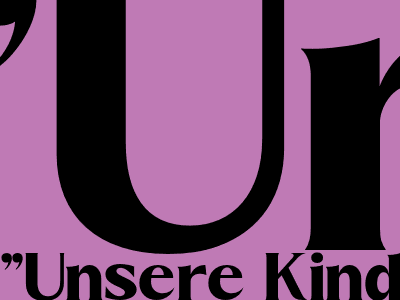
"Our Children Must Develop a Thick Skin"
Political Debate Erupts After Shocking Statement by Education Minister
In a controversial move, Education Minister Bettina Stark-Watzinger has ignited a firestorm with her recent statement urging children to "develop a thick skin" in response to the increasing prevalence of hate speech and bullying in schools. Her comments have sparked outrage from parents and educators alike, who argue that they are insensitive and do not address the root causes of the problem.
Stark-Watzinger's Stance: Building Resilience
Stark-Watzinger maintains that her intention is not to dismiss the seriousness of hate speech but rather to equip children with the coping mechanisms they need to navigate a challenging world. She believes that by teaching children to withstand hateful comments, they can build resilience and avoid internalizing the negative messages they may encounter.
Critics' Concerns: Oversimplification and Lack of Solutions
Critics argue that Stark-Watzinger's approach is oversimplified and fails to address the underlying issues that contribute to hate speech and bullying. They point out that resilience alone cannot prevent children from experiencing harm or trauma. Furthermore, they believe that the minister's statement places the burden on children to adapt to a hostile environment rather than holding those responsible for creating it accountable.
Balancing Resilience and Responsibility
The debate highlights the complex challenge of addressing hate speech and bullying in schools. While it is important to support children and help them develop coping mechanisms, it is equally crucial to confront the root causes of these behaviors. This requires a multifaceted approach that involves educating students about tolerance and diversity, addressing underlying social issues, and holding accountable those who engage in hateful or discriminatory conduct.
Ongoing Discussions and Search for Solutions
As the debate continues, education stakeholders are actively seeking solutions to address hate speech and bullying effectively. Experts emphasize the need for proactive measures that promote empathy, respect, and inclusivity in school environments. They also call for increased support for victims of hate speech and bullying, as well as training for teachers and administrators to effectively handle these situations.
Conclusion: A Call for Collaborative Action
The controversy surrounding Stark-Watzinger's statement underscores the urgency of finding comprehensive solutions to the problem of hate speech and bullying in schools. It requires a collaborative effort involving educators, parents, policymakers, and community organizations to create safe and supportive learning environments where all students feel valued and respected.